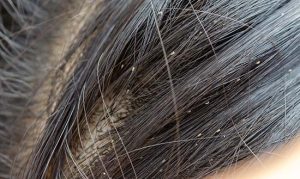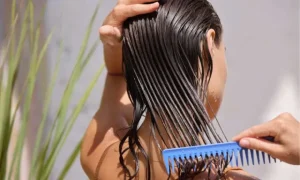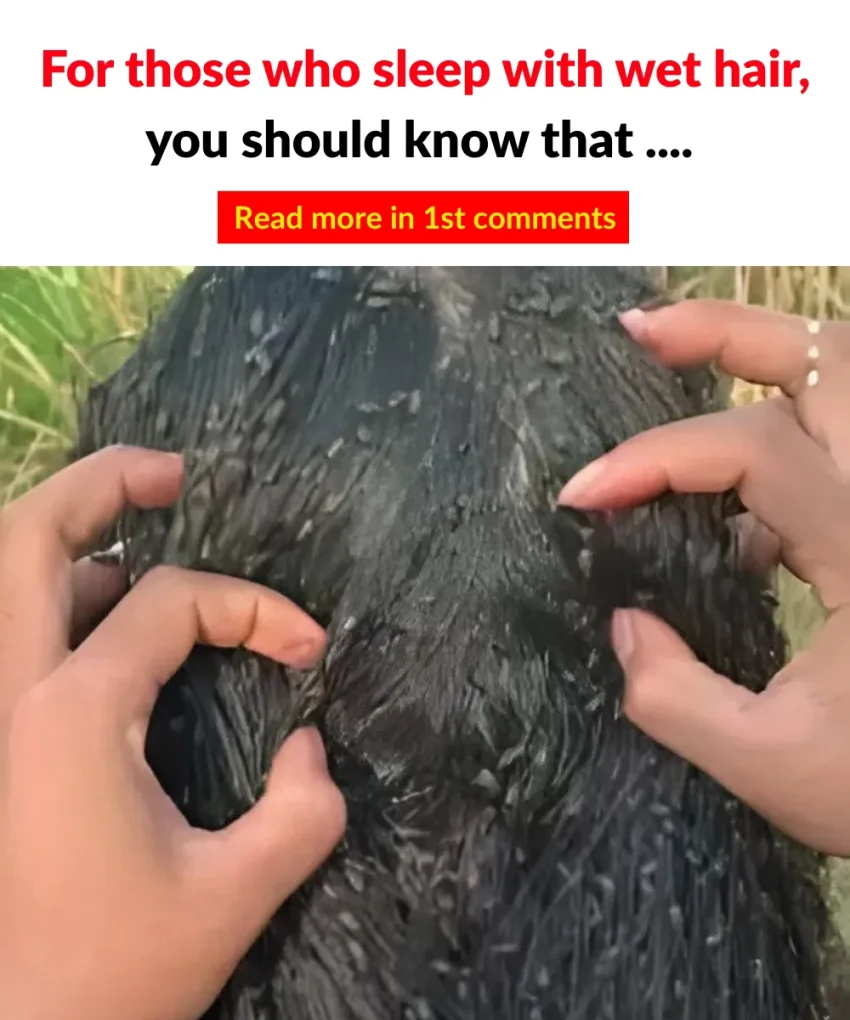After taking a late-night shower, we’ve all been too exhausted to blow dry and wondered, “It’s just water, what harm could it do?” However, a number of fallacies around sleeping with damp hair have caused many of us to reevaluate our bedtime routines over time. So let’s get things straight!
❌ Myth 1: Lice are caused by wet hair.
Reality:
Wet hair is not the cause of head lice. They are parasites that are transmitted via direct contact with an infected individual or by exchanging personal objects such as hats or combs.
Sharing a pillow with someone who has lice may attract lice, but sleeping with wet hair won’t do that for you.

❌ Myth 2: It is completely innocuous
Reality:
Although it can appear innocuous, sleeping with wet hair can cause serious problems:
Bacteria and fungi thrive in an environment that is wet on the scalp.
Conditions like seborrhoeic dermatitis or dandruff may get worse as a result.
Because wet hair is weaker, split ends, tangling, and breaking are more likely to occur.
Myth 3: Using a blow dryer is not as effective as air drying overnight.
Fact:
Leaving hair wet overnight isn’t always a good idea, even though excessive heat might harm hair. Your hair will remain wet for hours if you let it air dry while you sleep, which damages the natural equilibrium of your scalp and the hair strands.
The ideal choice? Before going to bed, gently pat dry with a towel and then use a blow dryer set to low or cool.

❌ Myth 4: The only hair that is impacted
Fact:
Nope, this is true for all hair kinds and lengths. The hazards are the same whether you have long, straight hair or short curls. Here, the health of your scalp is the primary priority, and your hairstyle is not a factor.
❌ Myth 5: Wet hair can be controlled by tying it up.
Fact:
Tying up wet hair may seem like a neat solution, but it might really make the situation worse. Because wet hair swells and becomes more elastic, it is more likely to break when pulled taut.
Additionally, wearing tight hairstyles to bed might strain the roots, causing permanent hair loss.

✅ What are you supposed to do?
If washing your hair at night is a must:
To absorb extra water, use a microfiber towel.
Before you go to bed, make sure it is at least 80% dry.
In order to minimise friction, think about using a silk pillowcase.
Never sleep with your hair tight; instead, wear it down or in a loose braid.
💬 Conclusion
Sleeping with wet hair can harm your hair and scalp over time, but it won’t cause lice. You may develop healthy habits by being aware of the facts, and your hair will appreciate it.
